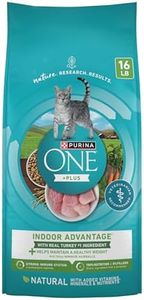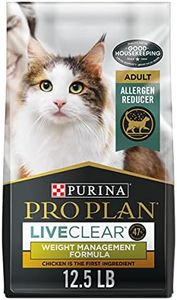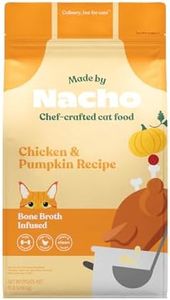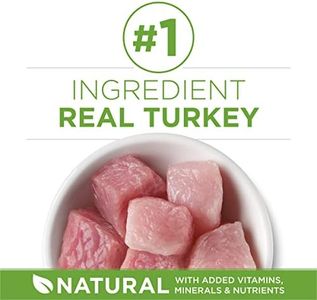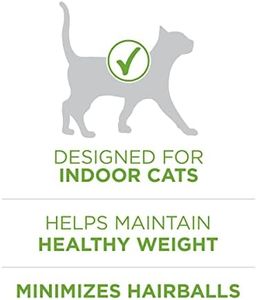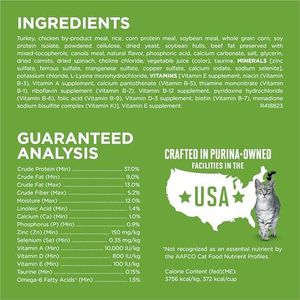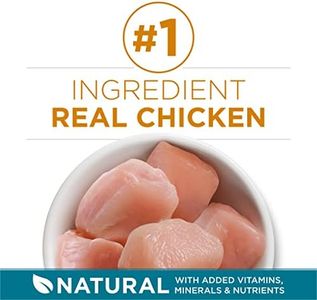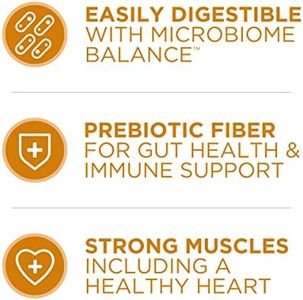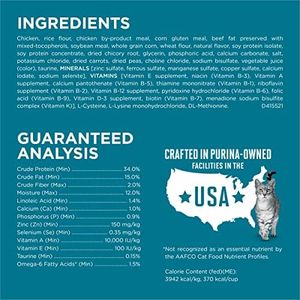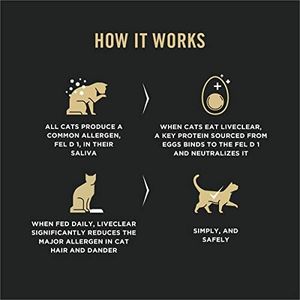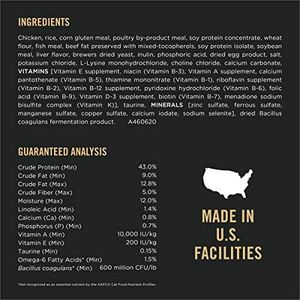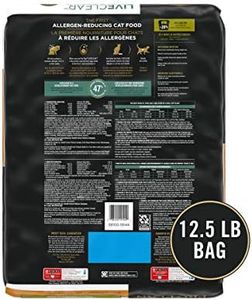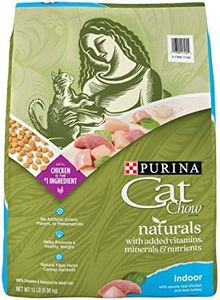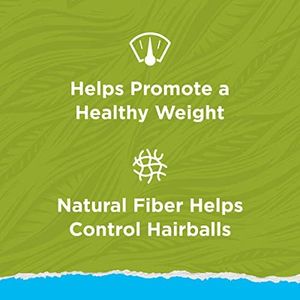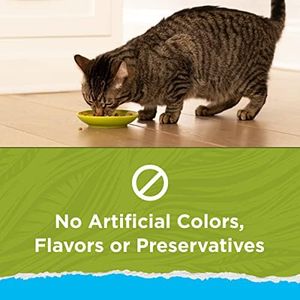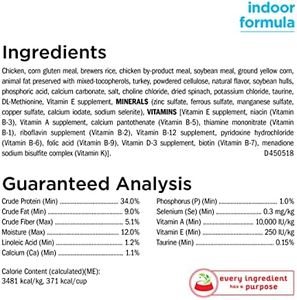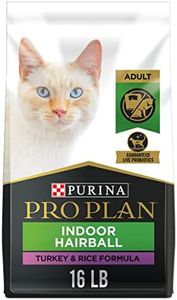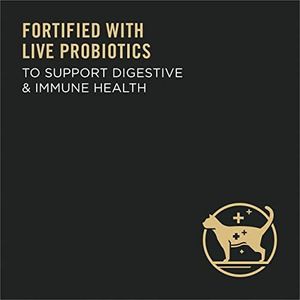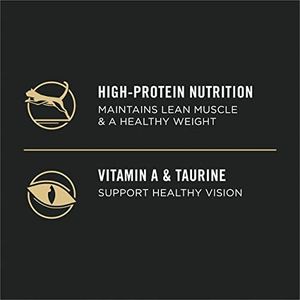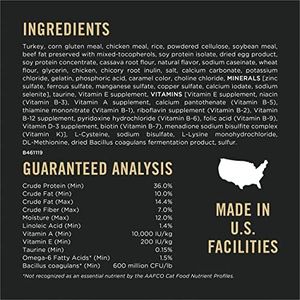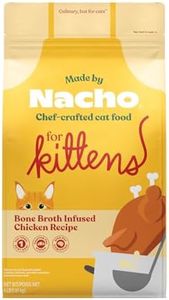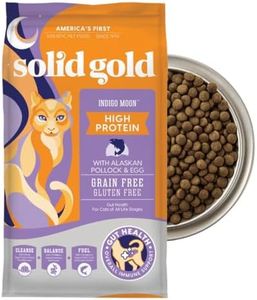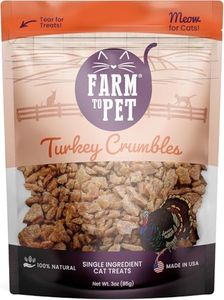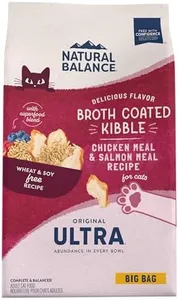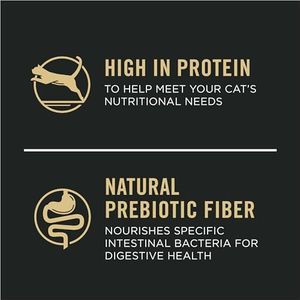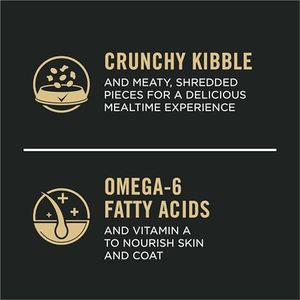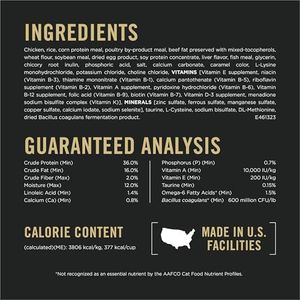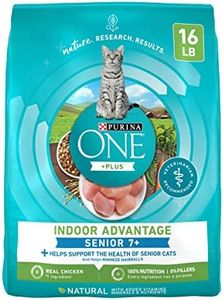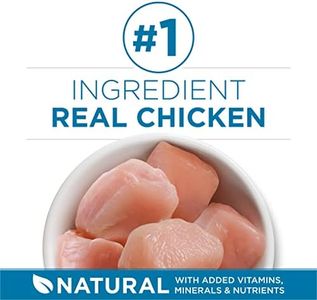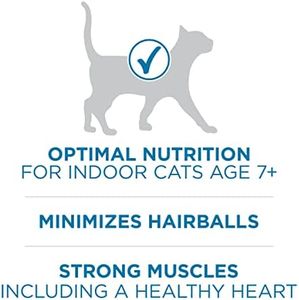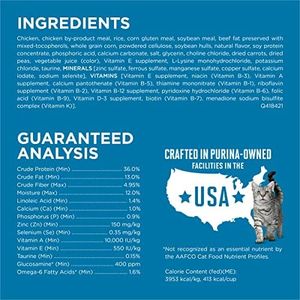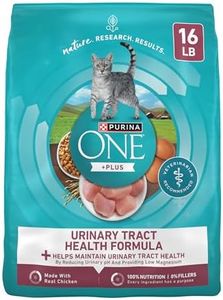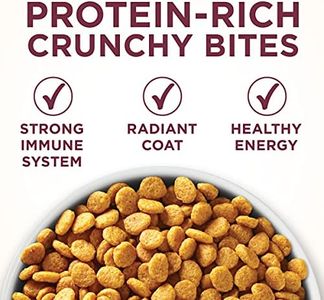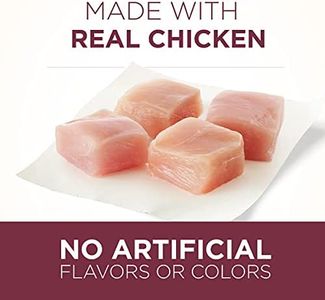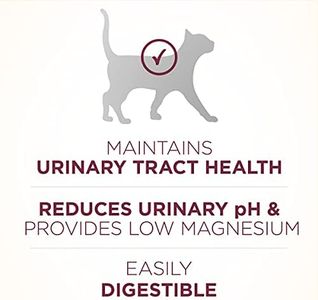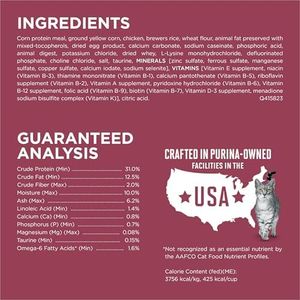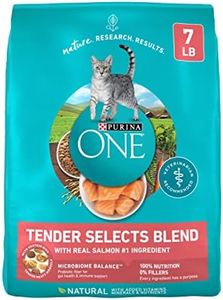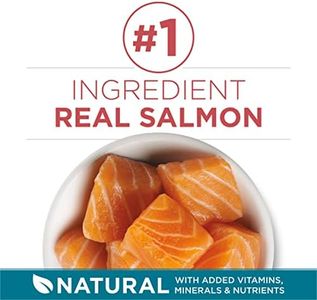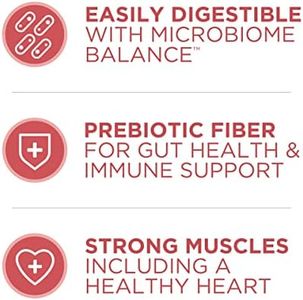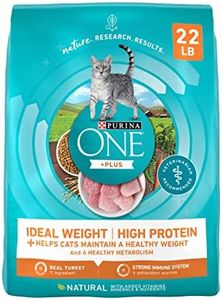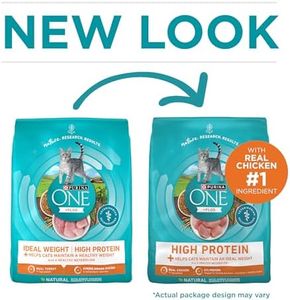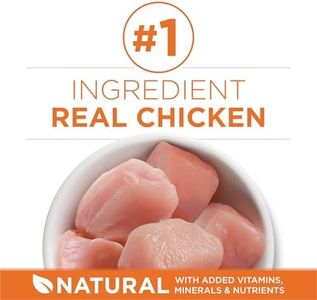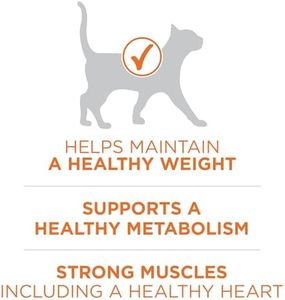10 Best Purina Dry Cat Foods 2025 in the United States
Winner
PURINA ONE Natural, Low Fat, Weight Control, Indoor Dry Cat Food, +Plus Indoor Advantage - 16 lb. Bag
The PURINA ONE Natural, Low Fat, Weight Control, Indoor Dry Cat Food, +Plus Indoor Advantage is tailored for adult cats, making it particularly suitable for indoor cats with weight management needs. The primary ingredient is real turkey, which offers high-quality protein crucial for muscle and heart health. This formula contains 10% less fat than other Purina blends, aiding in weight control, which can be beneficial for less active indoor cats.
Most important from
17794 reviews
Purina ONE Natural Dry Cat Food, Tender Selects Blend With Real Chicken - 22 lb. Bag
Purina ONE Natural Dry Cat Food, Tender Selects Blend with Real Chicken is a popular choice among pet owners. It features real chicken as the primary ingredient, ensuring a high protein content to support strong muscles. This dry cat food also includes high-quality carbohydrates for sustained energy. The addition of prebiotic fiber aids in digestive health and immune support.
Most important from
9332 reviews
Purina Pro Plan Allergen Reducing, Weight Control Dry Cat Food, LIVECLEAR Chicken and Rice Formula - 12.5 lb. Bag
Purina Pro Plan Allergen Reducing, Weight Control Dry Cat Food, LIVECLEAR Chicken and Rice Formula offers a unique solution for cat owners who struggle with allergies. This cat food is designed to reduce the major allergen in cat hair and dander by neutralizing Fel D1 with a special protein from eggs, backed by over a decade of research. This feature can be particularly beneficial for cat owners with mild to moderate cat allergies.
Most important from
1474 reviews
Top 10 Best Purina Dry Cat Foods 2025 in the United States
Winner
PURINA ONE Natural, Low Fat, Weight Control, Indoor Dry Cat Food, +Plus Indoor Advantage - 16 lb. Bag
PURINA ONE Natural, Low Fat, Weight Control, Indoor Dry Cat Food, +Plus Indoor Advantage - 16 lb. Bag
Chosen by 1218 this week
Purina ONE Natural Dry Cat Food, Tender Selects Blend With Real Chicken - 22 lb. Bag
Purina ONE Natural Dry Cat Food, Tender Selects Blend With Real Chicken - 22 lb. Bag
Purina Pro Plan Allergen Reducing, Weight Control Dry Cat Food, LIVECLEAR Chicken and Rice Formula - 12.5 lb. Bag
Purina Pro Plan Allergen Reducing, Weight Control Dry Cat Food, LIVECLEAR Chicken and Rice Formula - 12.5 lb. Bag
Purina Cat Chow Hairball, Healthy Weight, Indoor, Natural Dry Cat Food, Naturals Indoor - 13 lb. Bag
Purina Cat Chow Hairball, Healthy Weight, Indoor, Natural Dry Cat Food, Naturals Indoor - 13 lb. Bag
Purina Pro Plan Hairball Management, Indoor Cat Food, Turkey and Rice Formula - 16 lb. Bag
Purina Pro Plan Hairball Management, Indoor Cat Food, Turkey and Rice Formula - 16 lb. Bag
Purina ONE High Protein, Natural Senior Dry Cat Food, Indoor Advantage Senior+ - 16 lb. Bag
Purina ONE High Protein, Natural Senior Dry Cat Food, Indoor Advantage Senior+ - 16 lb. Bag
Our technology thoroughly searches through the online shopping world, reviewing hundreds of sites. We then process and analyze this information, updating in real-time to bring you the latest top-rated products. This way, you always get the best and most current options available.

